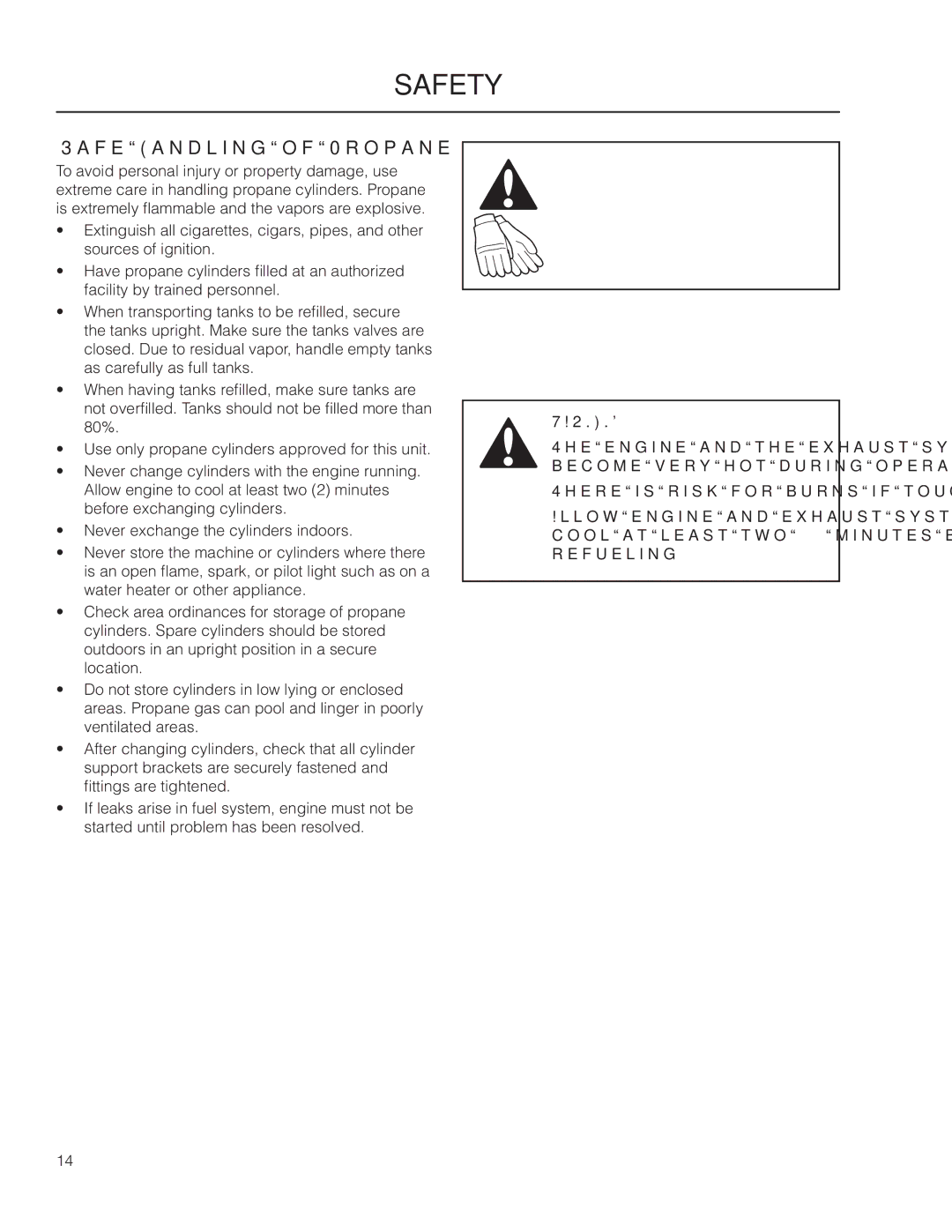
SAFETY
Safe Handling of Propane
To avoid personal injury or property damage, use extreme care in handling propane cylinders. Propane is extremely flammable and the vapors are explosive.
•Extinguish all cigarettes, cigars, pipes, and other sources of ignition.
•Have propane cylinders filled at an authorized facility by trained personnel.
•When transporting tanks to be refilled, secure the tanks upright. Make sure the tanks valves are closed. Due to residual vapor, handle empty tanks as carefully as full tanks.
•When having tanks refilled, make sure tanks are not overfilled. Tanks should not be filled more than 80%.
•Use only propane cylinders approved for this unit.
•Never change cylinders with the engine running. Allow engine to cool at least two (2) minutes before exchanging cylinders.
•Never exchange the cylinders indoors.
•Never store the machine or cylinders where there is an open flame, spark, or pilot light such as on a water heater or other appliance.
•Check area ordinances for storage of propane cylinders. Spare cylinders should be stored outdoors in an upright position in a secure location.
•Do not store cylinders in low lying or enclosed areas. Propane gas can pool and linger in poorly ventilated areas.
•After changing cylinders, check that all cylinder support brackets are securely fastened and fittings are tightened.
•If leaks arise in fuel system, engine must not be started until problem has been resolved.
WARNING!
Propane, either liquid or vapor, is extremely cold. Use protective gloves when venting, refilling or exchanging cylinders.
WARNING!
The engine and the exhaust system become very hot during operation.
There is risk for burns if touched.
Allow engine and exhaust system to cool at least two (2) minutes before refueling.
14
